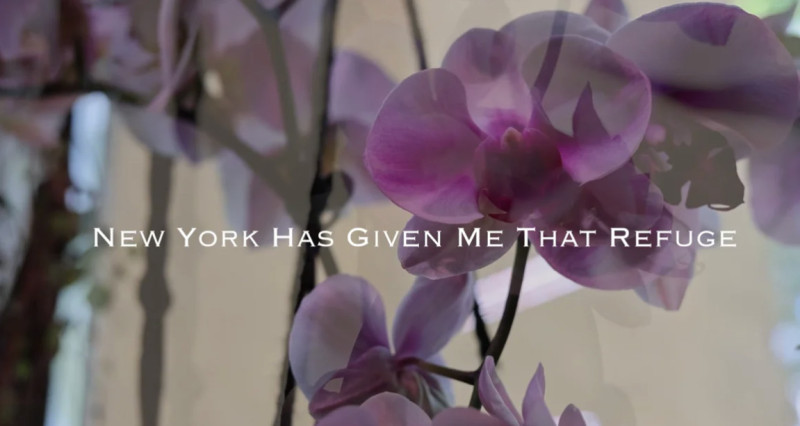
New York has given me that Refuge
In this film, refugee South Asian LGBTQ+ activist Barbara Khan talks about her migration from Pakistan and her life in New York as a trans woman.
I wanted to ask you about your bond to your mother language. How you sustain it? Switching to English – how does that feel?
I started to learn English at a very early age… Most people I meet here, when they hear that I’m from Turkey, they’re like: Oh, but you have such a good English. I’m like: OK, this is not a comment that you would make to someone from, let’s say, France, right? You are by default expecting me to have a bad English. And then you are surprised that I have what you perceive as a “good English”. I don’t think my English is good. I’m still like struggling with that… But like this is a comment that I hear from a lot of people… I still use Turkish a lot in my daily life…But I sometimes find myself not finding the correct words in Turkish…You know, again, maybe it’s an example of being in limbo or being lost in between two cultures or languages. I don’t belong here. I feel like I don’t belong to the English language in the sense that I don’t think in English, right? But I also don’t feel like belonging to Turkey or to that language…
What is home for You? Do you have home sickness? Have you experienced stereotypes about the Middle East, discrimination, exclusion, Islamophobia in the US?
Home is something that I’m longing for, that’s the only thing I can say at this moment. I usually tell the closest people to me that I don’t know where home is. Sometimes people are asking me: Where do you want to live? And I don’t know. I don’t want to live in Turkey because of the political atmosphere, but that’s my home in the sense that I was born there, my friends and my family are there. I constantly say that I want to settle, I want to know where I will be living for the next five-ten years. But I don’t know where. It’s just the sense of belonging, I guess… It’s complicated, I don’t have an answer… I don’t feel at home here. I sometimes still think about: Do I like it here? I know that in my first year I complained every single day until I went to San Diego… […]
When I’m back in the city I live in, I still don’t feel like I’m at home here… Maybe it’s because of the sense of being the refugee scholar here… a sense that you are not belonging here… Now it’s my 5th year here, which is probably going to be my last year because of my J1 visa… And sometimes I feel like I’m homesick, but sometimes I feel like actually I’m not. I just miss my family and friends.
There was one specific instance which made me very upset, which happened at my workplace. One colleague was making a generalization of the Middle East and Middle Easterners as terrorists. That was the most striking and very unfortunate event that happened here. And it was even more sad because this comment was coming from college professor, an educated person, who was allegedly very human, strong human rights defender… Sometimes I feel that some older people are not very happy that I am not Christian. But it’s not an issue about me being Muslim on paper. I think if it would have been the same if I was Jewish too because it’s not Christianity as a general category. At the beginning I was afraid that it might be an issue.
Hasan is a scholar with a PhD from a university in Europe. During their PhD they were working as a research assistant at the private university in Turkey and traveling between Turkey and the PhD granting country. In the summer of 2016, one week after the failed coup attempt in Turkey, the university was shut down by the government in a one night, along with the 14 other universities. Hasan lost their job. In Fall 2018 they came to the U.S. with the Scholar Rescue Fund Fellowship, where they are a visiting scholar.
Interview conducted by the We Refugees Archive team with Hasan in the spring of 2022. The interview was edited for length and clarity.